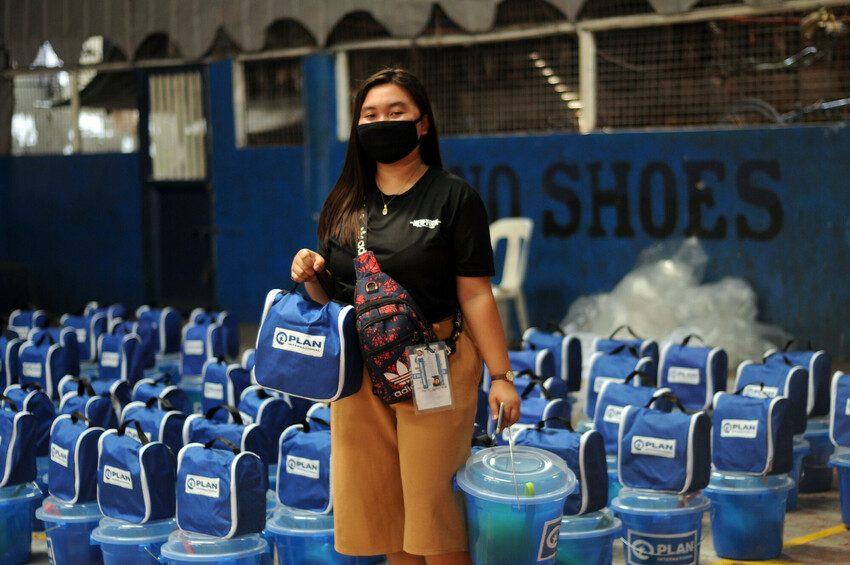“Periods don’t stop during pandemics”
17 January 2022<strong><span class="has-inline-color has-black-color">Just like many poor urban settlements throughout the world, Richelle’s community in one of the most populated districts in Manila, characterized by its small spaces which house many people, making the neighbourhood more vulnerable to the Covid-19 pandemic. At just 18, Richelle decided she couldn’t sit back and watch her community suffer.</span></strong>

In one of the most populated districts in Manila, the COVID-19 pandemic has had a huge impact on one community in particular. Already reeling from a fire which raged through the informal settlement displacing 1,055 families, the collection of temporary shelters and cramped compounds ensured the rapid spread of the virus.
Just like many poor urban settlements throughout the world, Richelle’s community is characterised by small spaces which house many people, making the neighbourhood more vulnerable to infectious diseases. As a result, strict quarantine measures were implemented which resulted in a loss of income and limited access to essential services and goods.
Richelle decided she couldn’t sit back and watch her community suffer. At just 18, she accepted the role of building coordinator as the first quarantine measures were imposed in March 2020. The local government needed more hands to ensure an efficient and effective system for their response activities.
“We need to ensure that those who need it the most will benefit from all the donations and response activities. We’re the bridge between the local government and the community,” explains Richelle.
“We’re the bridge between the local government and the community.”
While food donations and medical supplies provide essential help for many people in the community, other products, such as menstrual hygiene products, are often ignored and not seen as a priority.
“Donations are usually comprised of clothes, toothpaste and canned goods. It was our first time, and these items were very helpful. But sanitary pads are also a necessity for women and we needed to receive these items, along with soap, to reduce people’s need to go outside,” says Richelle.
To support Richelle and the other volunteers in their work, Plan International with funding from the Center for Disaster Philanthropy, was able to distribute menstrual hygiene kits to 1,500 girls and women. Along with the kits, we also delivered information training sessions on menstrual hygiene management and COVID-19 prevention.
Conversations surrounding menstruation can be a sensitive topic for some communities in the Philippines. For Richelle, it has been refreshing to receive training on menstrual hygiene management and getting women, and even some men, to attend these activities. They help in normalising menstruation and removing the taboos surrounding periods.
The support by Plan International has helped Richelle become more informed and she now volunteers her time beyond her coordinator role. “I have learned a lot during the orientation sessions, which I share with other residents, especially girls and young women.”
Richelle’s desire to help and learn more demonstrates what can happen when strong and fearless girls and young women are encouraged to take the lead. Richelle’s efforts ensure that the people most in need receive vital donations, while informing other girls and young women about the importance of menstrual hygiene.
2021 Asia-Pacific Girls Report: Voice, Choice, and Power
Plan International’s 2021 Asia-Pacific Girls Report reveals how girl leaders like Richelle are becoming a necessary force for gender equality in the region. The report, looking at the state of girls’ and young women’s leadership in Asia-Pacific, finds that girls and young women are working tirelessly to ensure gender-transformative change and social inclusion. Yet the environments in some countries are more enabling than others.
Categories: Campaigns, Emergencies, Youth empowerment



